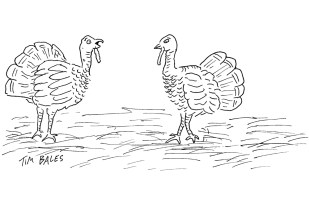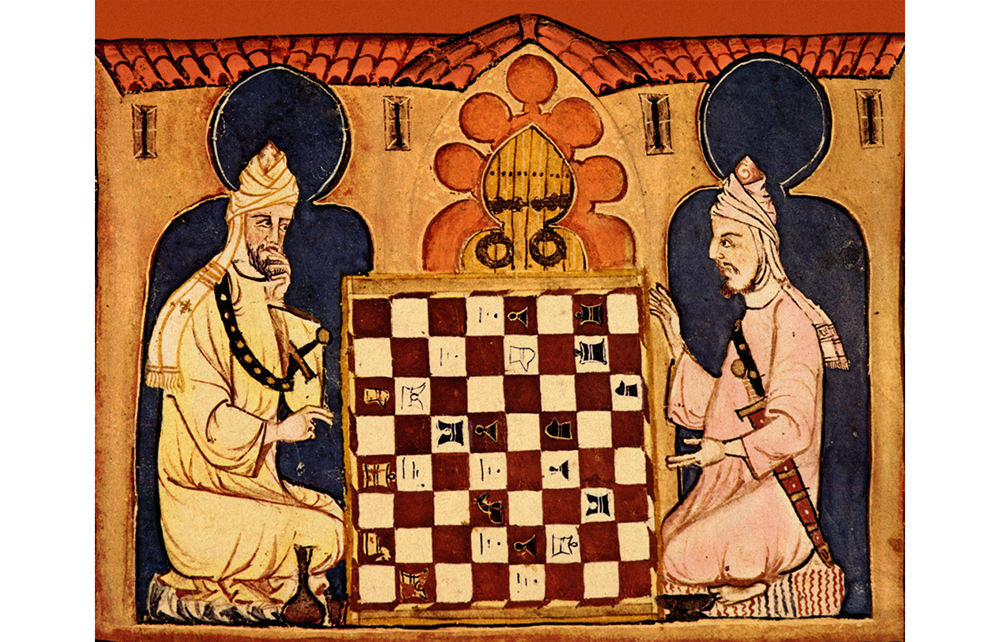In 2014, with the Middle East convulsed by the murderous, self-styled Islamic State, a Daily Mail reader wrote a letter to the editor which began: ‘Are you confused by what is going on in the Middle East? Let me explain…’ Aubrey Bailey went on to describe the dizzying complexity of diplomatic relationships thrown into turmoil:
So, some of our friends support our enemies and some of our enemies are our friends, and some of our enemies are fighting our other enemies, whom we don’t want to lose, but we don’t want our enemies who are fighting our enemies to win… And all this was started by us invading a country to drive out terrorists who weren’t actually there until we went in to drive them out – do you understand now?
Barnaby Rogerson, a publisher, writer and lifelong traveller in the Islamic world, is an accomplished guide through this confusing terrain. He is the author of a biography of the Prophet Mohammed and a study of the roots of the Sunni-Shia schism, a defining divide to which he returns in The House Divided.
The origins of this great intra-Muslim cleavage go back to the immediate aftermath of Mohammed’s death in 632. Those who supported the elevation of his son-in-law and cousin Ali were the Shiat Ali, the followers of Ali, in abbreviation the Shia. Opposing this group were the Ahl al Sunnah wal Jamaah, the People of the Traditions of the Prophet and the Consensus of the Community, the Sunni, who agreed with the power grab by Mohammed’s close companions Abu Bakr and Omar. While the Shia deplore the coup and the subsequent sidelining of Ali’s descendants to this day, the Sunni have traditionally preferred consensus among Muslims as the basis for selection.
Sunni historians stress the Qarmatians’ massacre of pilgrims in Mecca in 930 and the poisoning of wells
Yet the Muslim notion of ideal governance extends only so far. The Sunni consider it stretches 30 years from the Prophet’s death – covering the first four ‘rightly guided’ caliphs Abu Bakr, Omar, Uthman and Ali, the last assassinated in 661. It all went wrong after that. Hence the lingering craving in certain, often militant, Sunni quarters for this back-to-7th-century-basics governance – espoused by generations of radical reformers from Mohammed ibn Abdul Wahhab, the founder of the extremist Wahhabist sect in the 18th century, to al Qaeda, Islamic State and an alphabet of jihadists today.
Rogerson rightly emphasises that what unites Sunni and Shia is more fundamental than what divides them. ‘All Muslims recite the same Quran, revere the same Prophet Mohammed, pray, fast and go on pilgrimage to Mecca in the same way.’ His central argument, which he presents early on, is that supposed Sunni-Shia divisions are often exceeded by those deriving from ethnicity and language. Certainly this makes sense for his central triumvirate, the big-hitters of Turkey, Saudi Arabia and Iran, that historically have dominated the Middle East. These countries also fight, he writes, not just to win but to ‘preserve themselves from internal fragmentation’. Culture, geography and even climate change (water shortages are expected to drive future wars) are powerful vectors of division and conflict.
There is much to admire here, and a good deal with which some readers will disagree. Rogerson’s range, both historical and geographical, is impressive. He is especially sure-footed when tracing modern fault lines to their ancient origin. Today’s Shiites in Saudi Arabia, to take one example, remain a restive, regularly persecuted community which continues to cause headaches for fiercely Sunni Riyadh. They are the descendants of the militant Shiite Qarmatians of eastern Arabia who, in 899, established their own proto-socialist state in which state farms filled community granaries and the population was exempted from tax. Rogerson likes the sound of these desert lefties and their ‘idyllic sounding polity’, but acknowledges that Sunni historians take a more critical view, stressing the Qarmatians’ sacking of Mecca in 930, the massacre of pilgrims and the poisoning of wells.
Rogerson recently teamed up with the photographer Don McCullin on Journeys across Roman Asia Minor and his knowledge of the ancient, pre-Islamic past enlivens and enriches his study of the Middle East. His introduction of Syria encompasses Hittites, Philistines, Assyrians, Romans, Byzantines, Sassanids, Umayyads and Abbasids, with walk-ons by Moses, Jesus, St Paul and the Prophet Mohammed.

Most writers probably would not have bothered to include Azerbaijan, Afghanistan and Chechnya in a study of the Middle East, but Rogerson commendably takes the wider view, arguing that each are an important part of the story. Russia’s concern about Chechen militancy, for example, helped inform its decision to reinforce President Assad in Syria.
Rogerson does not pull his punches. America regularly gets it in the neck. ‘The US would not have a monopoly on stupid presidents,’ he writes in a passage on Mahmoud Ahmadinejad, the former president of Iran. Britain does not come out smelling of roses, either. It is charged with ‘criminal irresponsibility’ for evacuating Palestine in 1948, leaving Jews and Arabs to fight it out among themselves, a failure for which both communities continue to pay the heaviest price.
A number of the arguments advanced here are debatable. ‘Muhammed was not interested in temporal power,’ Rogerson writes. Many would maintain that the opposite was true. In his lifetime Mohammed was the undisputed religious, political and military leader of the Muslims. He was an intensely political figure, a brilliant leader of men who emphatically did not confine his leadership to spiritual affairs.
On modern Iran, Rogerson notes that both the Ayatollahs Khomeini and Khamenei have repeatedly declared that nuclear bombs go against Islamic teaching. Given the daily lies of the regime in Tehran, this seems a dangerously credulous approach on which to base western foreign policy. ‘Maybe one day the people will be able to select their own leadership,’ he says of Iranians. Later, he expresses his hope that Iranian clerics will go back to their colleges. To which the answer is probably not unless they are forced to. This is not about Shia Islam or diplomatic relations with Iraq or the West. It is about power. Orwell captured the ruthlessness of dictatorial regimes: ‘If you want a picture of the future, imagine a boot stamping on a human face – for ever.’
But these are only differences of political opinion. They do not detract from what is a highly readable, lovingly researched, romantic and engaging history.






Comments